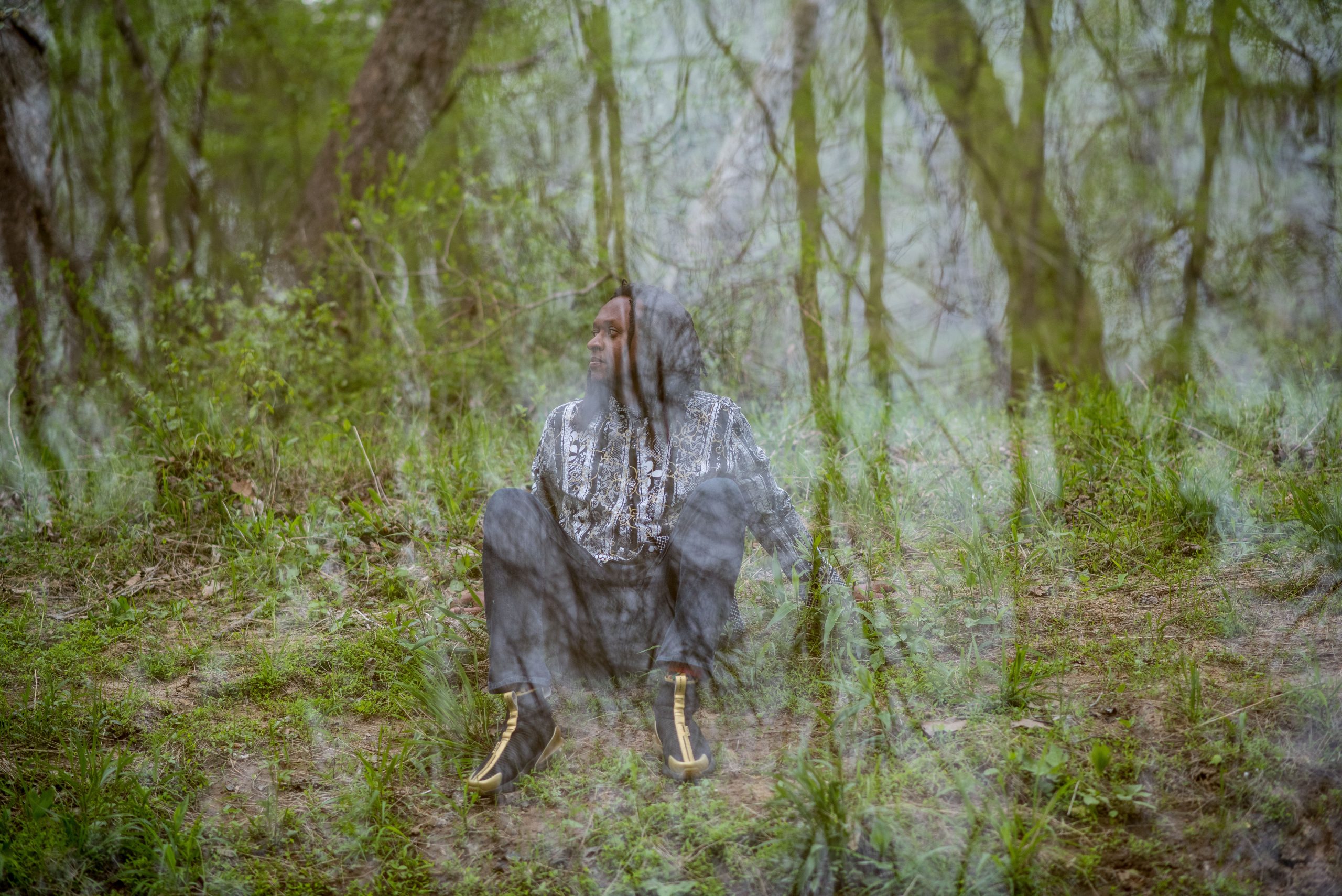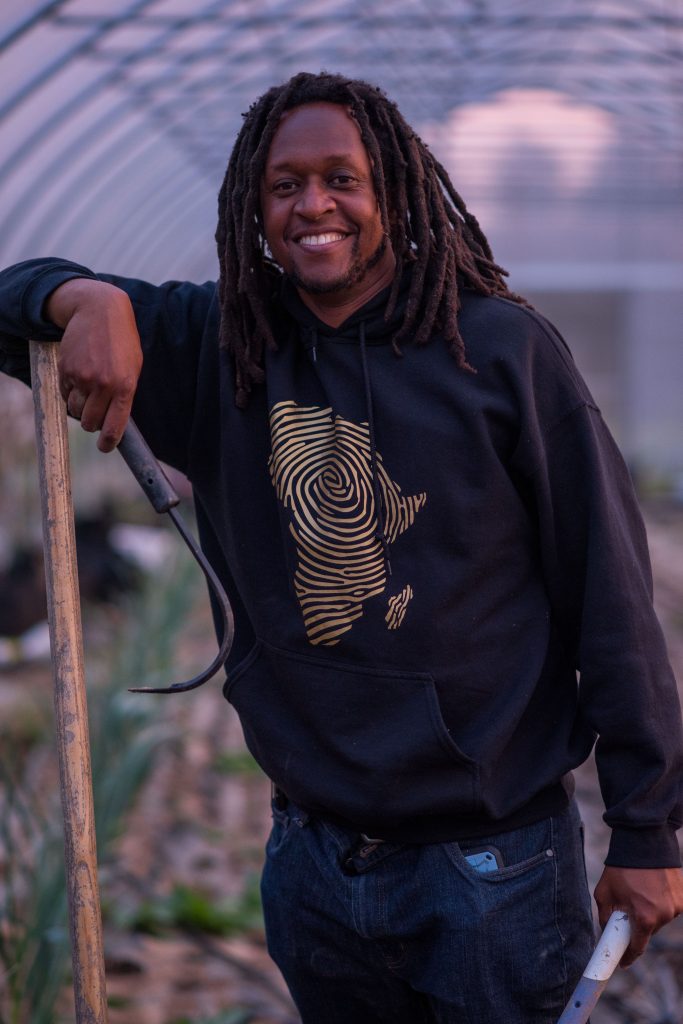Carter Farms: A Growing Agent of Change in the state of Virginia


By Sonia Montalvo I Photos by Kori Price
With a payment of seven hundred and twenty dollars and five cents, Michael Carter Jr.’s great-great-grandparents Jefferson Davis Shirley and Katherine Walker Shirley bought well over 100 acres of land in Orange County, in the small town of Unionville more than a century ago. Carter Farms, one of only 50-plus Black-owned farms in the state of Virginia, is the result of generational stewardship, and the preservation of a family legacy.
“Carter Farms, a small operation family farm, is one of three operations The land itself holds three different farming operations. My uncle raises cattle and pigs. My cousin on his part of the land has Rasta farms and, I have Carter farms.” Michael states that his lineage has a history deeply ingrained in agriculture dating back as far as 1745,
Carter Farms distinguishes itself from other farms in the area through its unique farming practices. After spending five years in Ghana as an Agriculture consultant, Michael returned to the States in 2017. With plans to grow African vegetables to sell at various Ghanaian and African markets throughout the state, Michael wanted to come back to the U.S. to share what he learned. Seeing his family’s land as an opening to showcase sustainable farming methods learned from his time in the motherland and share his knowledge with the community, Michael embarked on a mission to transform Carter Farms into an example of agricultural innovation and cultural exchange in the Central Virginia region. The farm specializes in growing organic African tropical vegetables and plants such as hibiscus, scotch bonnet peppers, okra, peanuts, and a variety of other vegetables to increase the options for healthy foods available to the public. He exclaims, “One of the things I told myself when I got back, from Ghana [is that] I need to come back and tell this story. Initially, I thought I would be telling the story of my experiences in Ghana and those stories, those personalities, and individuals, not knowing that the land was telling me, I’d be telling the story of my family, the individuals that resided in and on that land.” Now in 2024, Michael has succeeded in building several branches of sustainable agricultural practices and community outreach initiatives.
A professor at the University of Virginia and in partnership with his non-profit Africulture, Carter Jr. teaches African-centered agricultural and farming practices. Working with various partners within this endeavor such as the USDA, Future Farmers of America, and others, the idea is to equip people in general, but specifically, people of African descent with knowledge of growing foods to create strong and healthy communities with Carter Farms sitting at the epicenter of it all. Michael also noted that several students, especially those committed to environmental science and legislative policy around the environment.”
Africulture as a non-profit arm also works with Our Space World, a Maryland Non-Profit, and the National Institute of Food and Agriculture, to offer the curriculum to African American home school students complete with culturally relevant learning materials to aid in the education of youth on all things environmental justice and farming. Carter Jr. Also works to partner with local businesses such as Black-owned Sweet Vines Farm Vineyard, whom he happens to be land neighbors with. The two have worked together in several different capacities to put together events and workshops for the area. Michael also mentions that the work of the Sweet Vines owner Seidah Armstrong is a galvanizing and inspirational to so many. When asked about the driving force behind his collaborative efforts, Michael stated this:
“I follow the fruits of nature, and follow the lead of nature. In nature, you have trees, and right now we’re in the middle of pollen season. Pollen is to pollinate other trees. It provides nourishment for bees, insects, birds, etc. And even though it’s an inconvenience to us, it sustains the larger and broader ecosystem. And nothing in nature works in a silo. They’re all interconnected. The birds, the bees, the insects, the mosquitoes, they’re all working toward a greater good. Humanity always appreciates it, but that’s what it’s working toward. At Carter Farms, we kind of adopt the same philosophy of always working together for our own and mutual growth. That “I can’t grow if you can’t grow,” and I should be aiding your growth as you aid my growth. If I’m feeding you, that means you should be doing something for me, or I’m helping you out and that would also help out the larger community and benefit me down the road.”
Carter Farms is committed to informing the public about sustainable farming and the positive outcomes that come to people of African descent when implementing healthy produce from Africa into their diets. Michael stated, “I think it’s very important one of the things we’re establishing at the farm is eating for the appetite. People of African descent need to eat more of foods that are From Africa. Because they’re The molecular construction of that food is calibrated to our genetics. Just how science works. What you eat from your lineage affects your genetic makeup.” As Carter Farms continues to till the soil of its land with purpose, Michael continues to push for not only regional impact but with sight on generating national influence around becoming a leader in climate-smart advances related to African crops. He hopes that his labor of love can contribute to helping Carter Farms set the tone as one of the pioneering farms introducing African produce “back to the African American dietary lexicon.”
Before ending the interview, Carter Farms owner stated that he wanted to send a message directly to the readership of Vinegar Hill magazine about convenience being the killer of the Black Farmer industry. He believes that consumers wanting the perks of grocery store-produced vegetables at cost-efficient prices that come almost table-ready is making it impossible for Black Farmers to compete with the beast of technology. His message is as is as follows:
“ It’s imperative for Black people to support Black farmers. We’re going extinct and we’re going extinct because our major community is not supporting us. You know, our Black churches aren’t supporting us, our Black families aren’t supporting us, Black consumers aren’t supporting us, and we have to depend upon larger institutions, white institutions, and public institutions to support us because Black people want to buy from us at a “reasonable and fair price.” When you ask for greens and stuff, you want to get the lowest possible price for the product. We don’t do that with our phones or our cars. You’re getting Mercedes Benz quality and you want used Hyundai prices and we need better. We need our people to really invest in us so we can invest in the health of our community.”
To find out more about Carter Farms and their work in the Central Virginia area, please visit their website, thecarterfarms.com.

Student loans often follow borrowers for years, sometimes decades. Even people who fully understand how much they borrowed can feel...

It was a busy week for RIA aggregators. There were a few large moves, including $235 billion multi-family office Cresset...

Blog Posts Archives UnfavoriteFavorite February 27, 2026 Weave: The Social Fabric Project Subscribe to Weave’s Newsletter This story was originally...